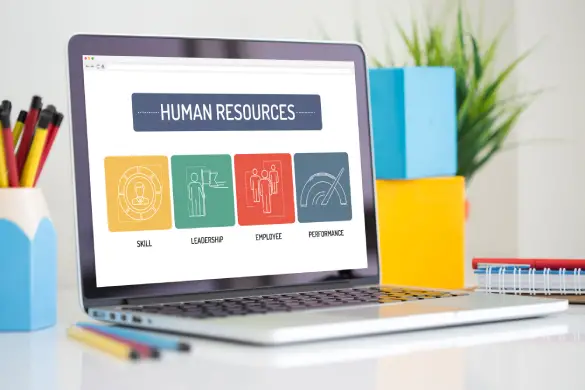
Human resources are an essential part of any small business and are one of the most complex. Working with many different people introduces various complexities that can’t accurately be described on paper. However, human resources (HR) is an imperative part of running a small business because employees are often a company’s greatest asset. As a small business owner, general knowledge of HR functions allows you to save money by performing them yourself as well as improve employee morale. Read on for a beginner’s guide to human resources for small business success.
Human Resources Basics
Knowing the various basic aspects of human resources work enables you to perform these functions to the best of your ability. For small businesses with less than 50 employees, there are three basic items to implement that will cover all your bases. First, you need to keep an I-9, a general file, and a medical file for each employee. The general file should contain any work-related documentation of the employee, such as resumes, reviews, and disciplinary actions. Notes from doctors, disability, and other relevant medical information should be kept in the medical file. Additionally, implementing an employee handbook tells your employees what’s expected of them and protects the business in the event of a dispute. Moreover, you may be required to display posters with relevant information in accessible places, depending on your industry and local laws. Indubitably, covering all bases with these three basic aspects of HR ensures legal compliance.
Knowing When to Delegate
While many small business owners often perform HR functions themselves, knowing when to delegate to a dedicated HR professional allows you to focus time and effort elsewhere. Several business owners say that owners should delegate when they realize their time could be better spent on other parts of the business, such as selling and consulting. Usually, this time occurs around the hiring of employee number 10-15. Additionally, there are often more tangible signs that dedicated HR is needed, such as if you have multiple managers using different hiring approaches and pre-employment tests. The pace of your business’s growth as well as turnover rates are also great indicators of dedicated HR needs. Certainly, knowing when to delegate to a dedicated HR professional or team of professionals enables you to serve your business in other ways.
Employee Recognition
Recognizing employees’ achievements will reduce turnover and save your business money in the long run. According to Gallup, disengaged employees can cost companies $3,400 for every $10,000 salary. Asking employees to record each other’s acts demonstrating company values is a great example of a recognition initiative. However, keep in mind that everyone is different, and therefore a single, broad approach should be avoided. Instead, tailor your recognition initiatives to individual employees as much as you can. Definitely, recognizing employees when they go above and beyond ensures their job satisfaction, reducing turnover and saving you money.
Software Considerations
There are many different software platforms that can heavily streamline HR functions. Such functions include resume database screening, hiring, benefits, onboarding, performance tracking, and employee handbook access. Keeping all these functions accessible on one platform massively reduces the time and effort it takes to perform them. Additionally, many HR platforms offer automation features that can keep workflows and processes online as well as ensure compliance with them. Of course, implementing the right HR software drastically impacts the time it takes to perform many functions due to automation.
Professional Employer Organizations
Professional employer organizations (PEOs) are companies that perform HR functions on behalf of small businesses. They are staffed with HR professionals and use a co-employment agreement to provide their services. PEOs take complete control of your HR functions, allowing you and your employees to devote more time to growing the business. In addition, PEOs secure benefits packages usually reserved for large enterprises by grouping employees from all the businesses they have contracts with. This means the PEO is the employer of record for these employees, which incentivizes the PEO to keep contracted businesses in legal compliance. However, some PEOs might not be a great fit for your business’s culture or be able to scale with your business. Absolutely, contracting a PEO allows you to focus on growing your business while incentivizing your employees with stellar benefit packages.
Human resources are an imperative part of small business success. You can ensure the success of your small business by learning the basic functions of HR, allowing you to save money by doing them yourself. Knowing when to stop doing it yourself and delegate to a dedicated professional allows you to focus more on growing your business. Recognizing employees for their achievements will go a long way in reducing turnover, which will save you money. Additionally, there are many HR software platforms that can automate many HR certification related processes. Finally, contracting a PEO ensures you can focus on growing your business while simultaneously keeping your employees happy. When searching for a beginner’s guide to human resources for small business success, consider the points above.
 Business First Family Business, Accounting, Finance, Investing, Marketing And Management
Business First Family Business, Accounting, Finance, Investing, Marketing And Management